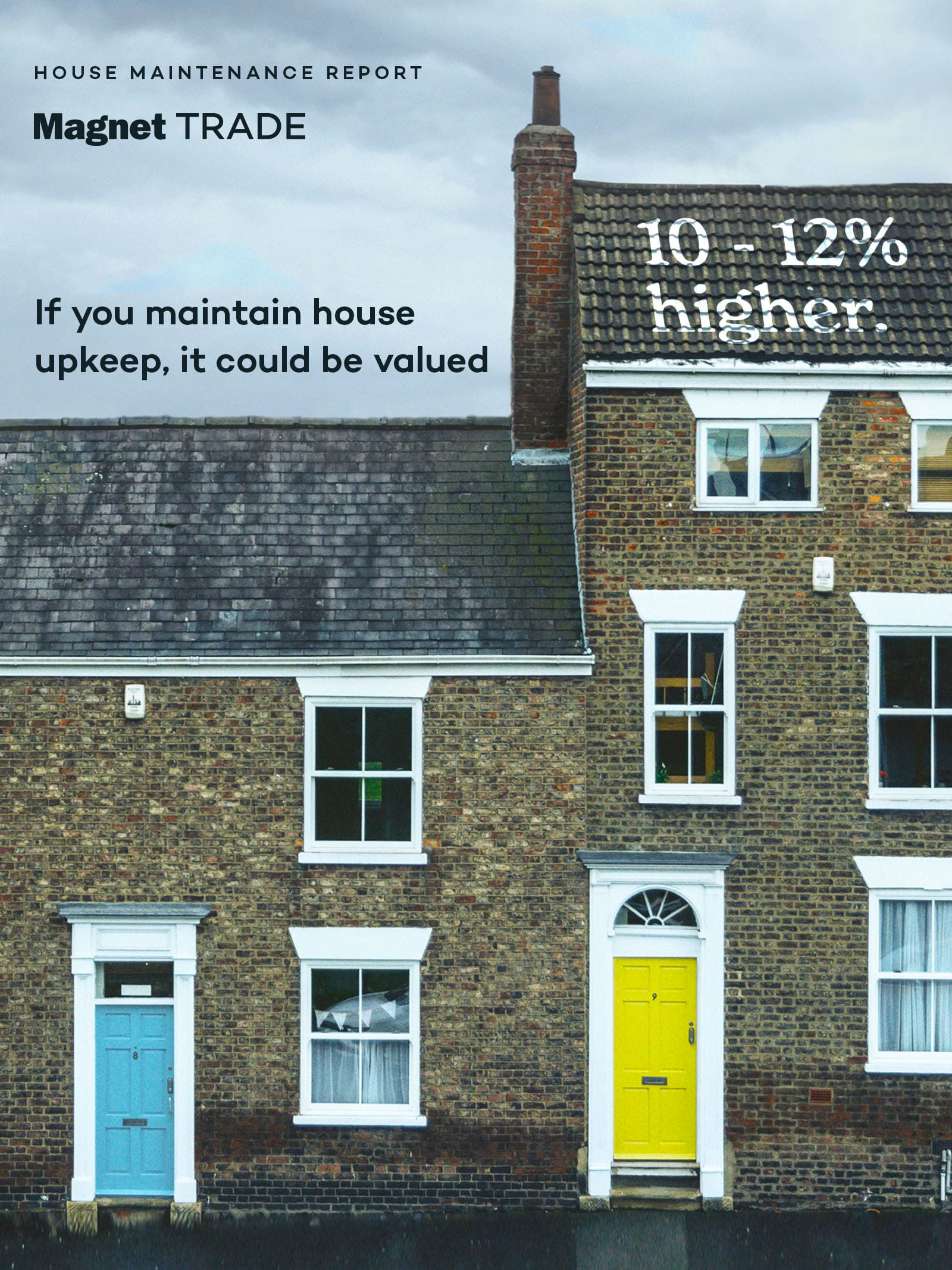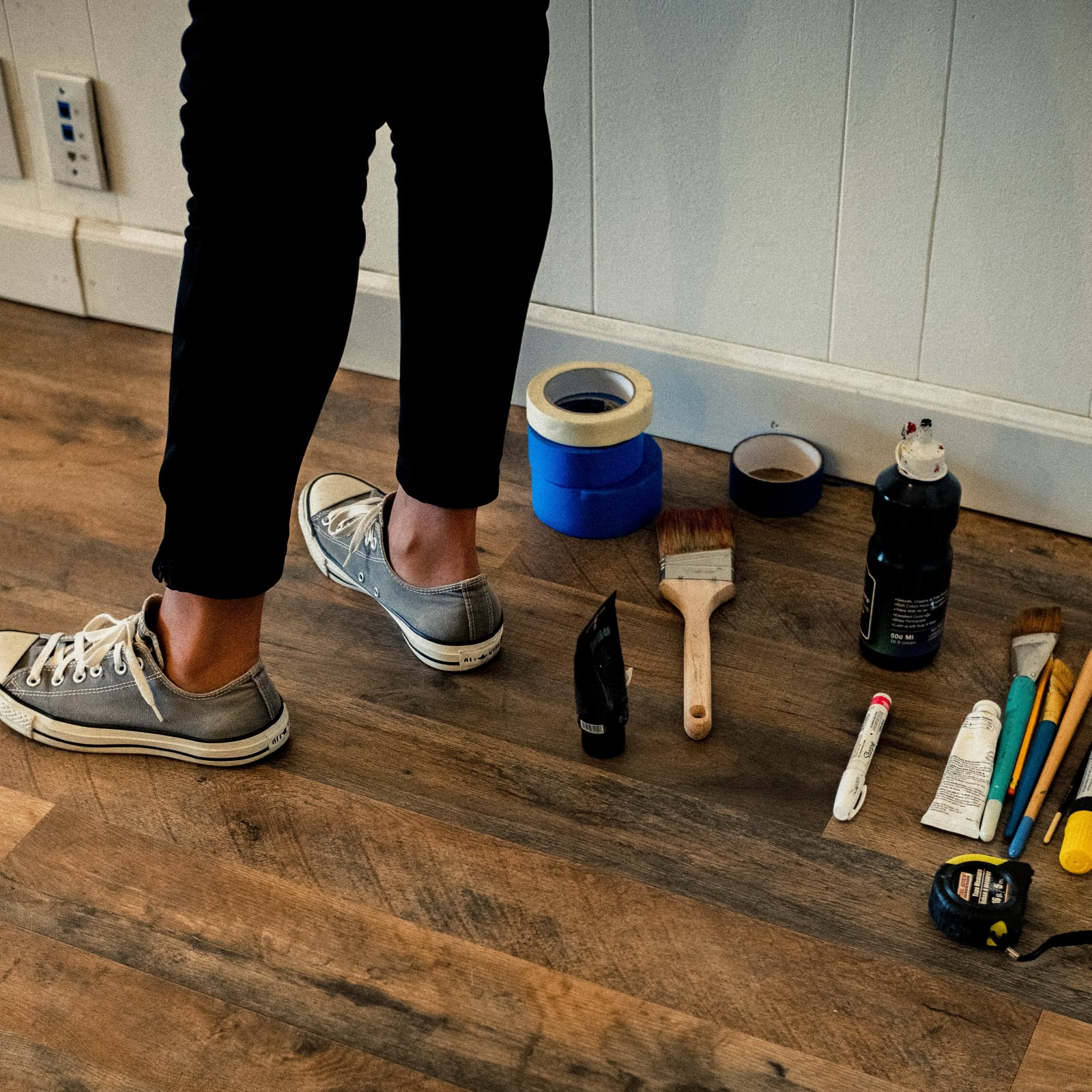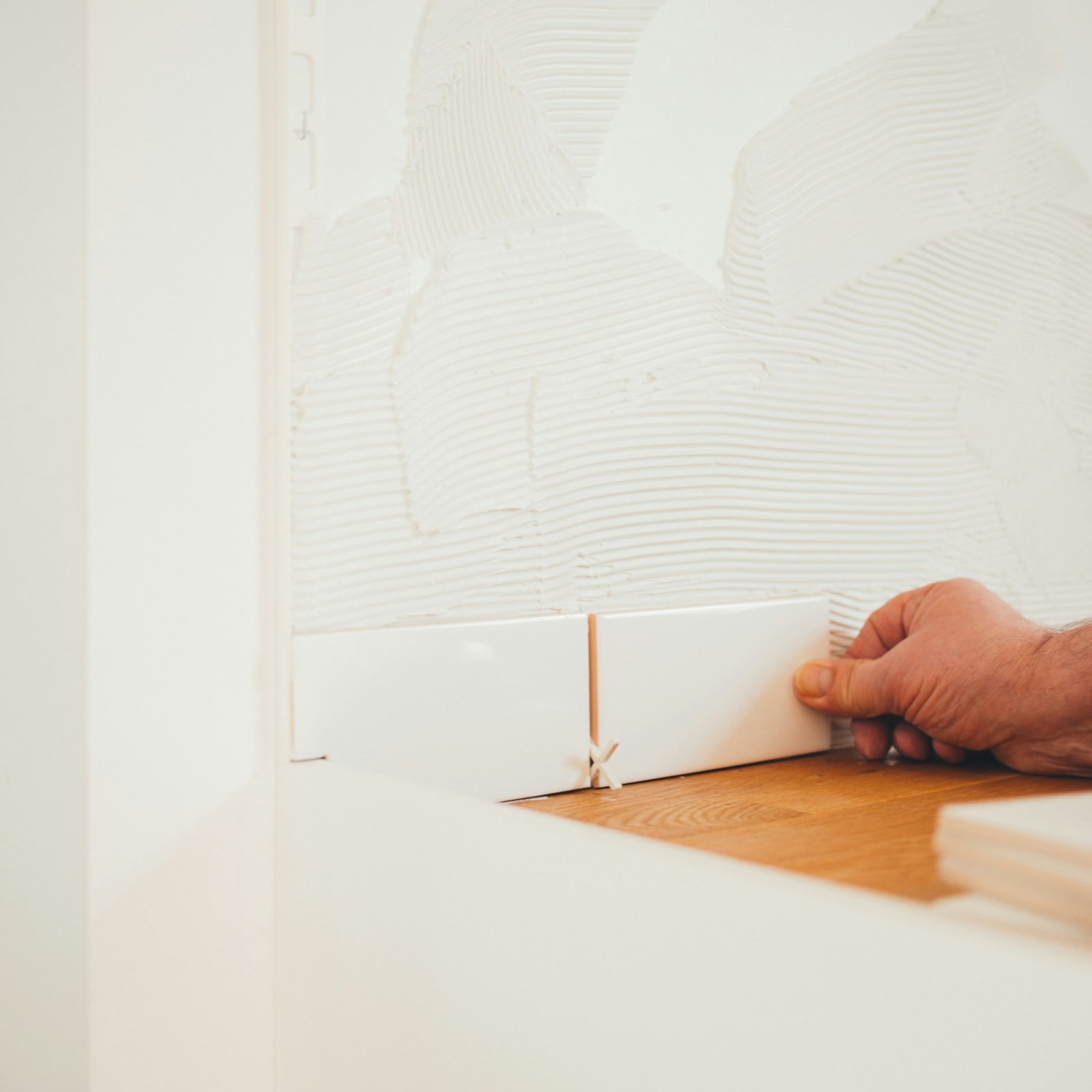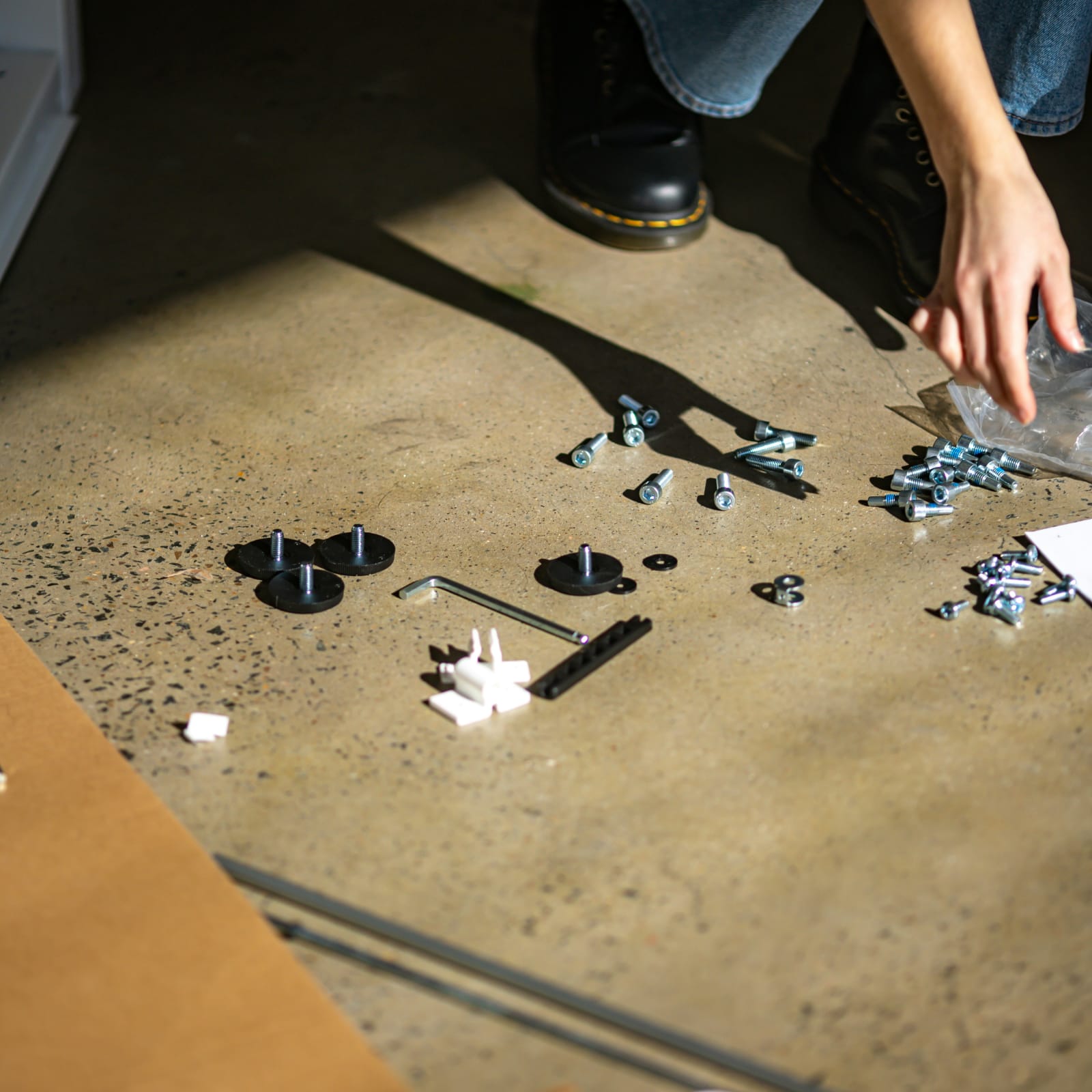How much should you spend on property upkeep to retain value?
It's important to ensure you maintain your property’s value through regular upkeep, in order to get as much return as possible when selling your property in the future.
Magnet analysed regional data and has spoken to property expert Robert Barr, Sales Director at Kerr&Co, to reveal just how much you need to be spending to maintain your property’s value, and where in the UK homeowners have to spend the most on house upkeep.
KEY FINDINGS
- Property experts recommend budgeting 1.5% of your property’s value a year to maintain its sale price in the market
- House maintenance is the most expensive in Chelsea and Kensington at £16,905 a year due to high house prices
- House maintenance costs are lowest in Burnley, at £1,565 a year
To find out more about what it takes to maintain your property’s value, we spoke to Robert Barr, Sales Director at Kerr&Co who said:
“With house prices constantly in the media spotlight and homeowners being more financially astute when it comes to buying a home, ensuring the upkeep of your property will help it stand out, increasing its appeal and potential value.
Maintenance is an integral part of home ownership that some have low on their priority list. However, being proactive reduces the chance of issues burgeoning into more significant problems, becoming overwhelming and exponentially more expensive. Thus avoiding substantially higher costs when preparing your home before marketing and selling.”

ALLOCATE UP TO 1.5% OF YOUR PROPERTY'S VALUE ON MAINTENANCE
Robert explains how much you should be budgeting in a year for property maintenance:
“Depending on the property's location and age, we recommend allocating up to 1.5% per annum of the value of your property, averaged over a ten-year period. This should cover essential works to help maintain and enhance both internal and external integrity and condition and more importantly your property’s value.
Careful periodic maintenance will mean costs are lower long term – after all prevention is better than cure. We’d advise homeowners to use the age of their property as a guiding factor on how much to budget per year to maintain it. Older homes will cost more to upkeep than modern properties., especially retrofitting modern heating systems for example.”
HOUSE MAINTENANCE CAN INCREASE THE VALUE OF YOUR HOME
Across the UK, if you properly maintain your home you can look to make, on average, an additional £33,369 when it comes to selling your home, as maintaining a 1.5% upkeep budget every year can increase the value of your property by 10-12%.
Robert comments that upkeep in your home will not only mean it retains its value, but it can also increase the resale value of your home significantly:
“If you maintain house upkeep, it could be worth as much as 10% to 12% more than similar less well-maintained properties, as well as appeal to a far wider audience making the sales process that much quicker.”
If looking to sell your property in the near future, consult your local independent estate agents as they can provide helpful insights into what buyers are looking for and therefore which maintenance tasks should be completed to get your house into the best possible resale value.

HOW MUCH TO SPEND ON HOUSE MAINTENANCE IN THE UK
Depending on your property's value and location, the amount you need to spend yearly to maintain the value of your home can vary to a significant extent. On average, the amount needed to retain value is £5,005 a year in the UK, averaged across a ten-year period. However, in areas where homes have a significantly higher value, the cost of maintenance will be greater.
House maintenance costs are the highest in Kensington and Chelsea, where homeowners are going to have to budget on average £16,905 on their yearly maintenance to keep their property price stable, which on average is £1.12 million in this area. However, Magnet’s study on the value of a kitchen when selling a home showed that regular upkeep in the form of a kitchen renovation can add £79,125.54 to the selling price, making every penny worth spending. Other boroughs in London with high property maintenance costs include Kingston at £8,142 a year, and Enfield at an average of £6,830 a year.

MAINTENANCE COSTS ARE HIGHEST IN LONDON BOROUGHS
|
Ranking |
Local Authority |
Costs per year |
|
1 |
Kensington and Chelsea |
£16,905 |
|
2 |
Westminster |
£13,064 |
|
3 |
Camden |
£12,455 |
|
4 |
Richmond Upon Thames |
£11,675 |
|
5 |
City of London |
£10,905 |
|
6 |
Hammersmith and Fulham |
£10,636 |
|
7 |
Islington |
£10,551 |
|
8 |
Elmbridge |
£10,431 |
|
9 |
Wandsworth |
£9,387 |
|
10 |
Hackney |
£9,258 |
HOUSE MAINTENANCE COSTS ACROSS THE UK
|
Ranking |
Local Authority |
Costs per year |
|
1 |
Mole Valley |
£8,759 |
|
2 |
Cambridge |
£7,519 |
|
3 |
Stratford-on-Avon |
£6,146 |
|
4 |
Devon |
£5,096 |
|
5 |
Slough |
£4,769 |
|
6 |
Manchester |
£3,577 |
|
7 |
Nottingham |
£2,761 |
|
8 |
County Durham |
£1,909 |
|
9 |
Hyndburn |
£1,745 |
|
10 |
Burnley |
£1,565 |
HOW BRITS ARE PAYING FOR THEIR RENOVATIONS
In the UK, 62% of respondents used savings, 28% used cash, 19% used a credit card and 8% used inheritance to pay for their home renovation.
5% of renovators in the UK used wedding gifts to pay for their renovation projects, which is significantly higher than in the US. For young couples struggling with high property prices and living costs, the practicality of financial contributions over traditional presents means couples can personalise their space and increase property value without incurring additional debt.
THE HOUSE MAINTENANCE JOBS TO DO WHEN YOU FIRST MOVE IN
When you first move into a new property your priority might be decorating your space to make it feel like home. However, there are some essential jobs you should carry out when you first move in to save yourself time and money in the long run.
1. CHANGE THE LOCKS
It may be often overlooked but changing the locks is the first step you should take after moving into a new property. This is to make sure you are the only people who have access to your house, as previous homeowners or their family members, contractors or estate agents may still have keys.
2. DEEP CLEAN THE PROPERTY
Not only does thoroughly cleaning your property give you a good fresh start in your home, but it will also allow you to closely inspect parts of the property and make you aware of any minor issues at an early stage, for example, any water damage to kitchen worktops or wear and tear on the skirting boards or architraves.
3. CHECK FOR DAMP
While most instances of damp will only need a simple damp-proofing treatment if you do not solve the issue early on it can go on to cause much more expensive damage. Before putting anything on walls or redecorating in any capacity, look at all your walls and ceilings to identify any areas where damp could be an issue so you can remedy it efficiently, or note where to keep an eye on for any future issues.
4. CHECK GROUTING AND SHOWER SEALANT
The simplest way to freshen up a bathroom is to re-grout between shower tiles. Alongside this, it’s crucial to check the seal on the shower to ensure no water is getting through. Resealing any gaps will save from water damage in the ceilings which can be much more costly to fix.
5. MAKE A NOTE OF RENOVATIONS
Walk through your new home room by room and make a note of any renovations and maintenance projects you want to carry out. For example, decorating any internal doors and changing the door hardware or fittings.
To minimise the amount of stress that comes with moving house, be sure to hire a tradesperson to assist with more complex tasks.



HOUSE MAINTENANCE JOBS TO DO IN SPRING AND SUMMER
Although many house maintenance projects can be carried out year-round, some specific jobs are best suited to spring and summer.
1. KEEP THE GARDEN TIDY TO AVOID DAMAGE TO BRICKWORK
In the garden, keep shrubs, hedges and climbers pruned to avoid any damage to brickwork on your external walls. Not only will this ensure the structural integrity of your home stays intact, but it will also reduce moisture retention and increase airflow to reduce the chance of dampness when winter comes.
2. MAINTAIN THE BOUNDARIES OF YOUR PROPERTY
Maintain boundaries with neighbours in the garden and repair fences quickly to avoid further deterioration that could be more costly in the long run. Not only will this help your neighbourly relationships, but it is also important for your privacy, security and aesthetic appeal when it comes to selling your property.
3. CHECK FOR ANY ROOF DAMAGE
The dryer and warmer weather in the summer means it is a great time to have a look at your roof and see if any of the coverings are damaged or missing. This will both help with the energy efficiency of your home and enhance its curb appeal. Do this before autumn comes to minimise the chance of rain leaks or safety risks to passers-by once the weather turns.
HOUSE MAINTENANCE JOBS TO DO IN AUTUMN AND WINTER
There are also specific property upkeep jobs that are best to be carried out in autumn and winter once the weather turns.
1. CHECK ALL PAINTED SURFACES
Look over all painted surfaces such as walls and ceilings when the weather is bad to ensure no damp patches are appearing in your home. Catching them early will help prevent more costly damage arising later down the line.
2. CHECK YOUR GUTTERS ARE WORKING PROPERLY
Check for any issues with the gutters, especially when it is raining. Check if you have any broken guttering and that the system is draining water properly. This will help prevent flooding in lower levels of your home, but also protect your exterior walls from further water damage.
3. ENSURE ALL WINDOWS AND DOORS ARE FIT FOR PURPOSE
Ensure windows and doors are draft-proof to make your home as energy-efficient as possible. Also make sure there are no leaks in your windows and doors that could let rain water in and cause water damage or rot to your home.
4. CHECK YOUR DRAINS ARE RUNNING FREELY
Check your drains every few months to ensure they run freely and avoid any costly repairs. This allows you to check for any clogged drains which can result in backups, slow drainage, and an unpleasant smell throughout your home. This also helps maintain hygiene in your home by ensuring a clean and safe living environment.
ROBERT ADVISES:
MOST COMMON MAINTENANCE ISSUES WITH OLDER PROPERTIES
If living in an older property, you are likely to need to spend more money and time on your property maintenance.
1. CHECK IF YOUR PROPERTY HAS SOLID BRICK WALLS
Older properties may have solid brick walls, as opposed to cavity construction, which allows damp to penetrate. In this case, water can slowly seep into internal walls, so be sure to check if this is the case when you first buy the home.
2. CHECK GROUND LEVELS ARE NOT BREECHING
Robert explains, “An inexpensive but fundamentally important task is to check external ground levels are not breaching the original slate damp-proof course – if the property has one. This is hugely important and will save thousands of pounds by rectifying common issues that occur with penetrating damp such as rot in the floor joists, or blown plasterboard requiring to be hacked off and the wall dry out before re-plastering.”
3. FIND OUT THE SOURCE OF ANY DAMP
According to Robert, “Many damp proofing companies are there to sell you a product, so seek independent advice on the cause of the damp – commonly the damp has a cause and therefore can be rectified – some examples being; breached damp proof course, leaking pipes or gutters and unsealed conduits through the masonry.”
4. CHECK THE ROOF COVERINGS OF YOUR PROPERTY
Another potentially expensive issue owners of older homes need to watch out for is roof and guttering maintenance. Robert advises, "Depending on the type of roof coverings your property has it may need replacing every 25-30 years, and with rainfall increasing it's worth considering the replacement of rainwater goods, such as deeper guttering and wider downpipes."
MOST COMMON MAINTENANCE ISSUES WITH NEW BUILD PROPERTIES
Robert Barr advises “In theory, purchasing a new build home should lessen the amount of house upkeep you’ll need to do. However, this shouldn't mean you should be complacent, there will be teething problems with new build properties, the most common of which are typically maintenance issues that shouldn’t go overlooked. For example plaster shrinkage cracks and uneven paint jobs. If you own a new build property and run into any maintenance issues, check with the house builder as most issues could be covered by the construction company or NHBC or similar warranty scheme.
We would recommend carrying out spot checks internally and externally every few months (especially when raining - a perfect time to check for issues with the gutters). This would allow you to monitor and address any issues such as all painted surfaces, roof coverings, windows etc to make sure they are in good condition and fit for purpose. Monitor your drains every few months to ensure they are running freely to avoid costly repairs.“
If you are a professional tradesperson working on property upkeep to maintain resale values, apply for a Trade account with us for exclusive trade prices and offers.
METHODOLOGY
To look at the average house maintenance costs regionally, we analysed the average house prices in local authorities from November 2023 and calculated what 1.5% of the property value would be, in line with expert recommendation, Robert Barr, Sales Director at Kerr&Co, on preserving the home’s value.
APPLY TODAY FOR A
MAGNET TRADE ACCOUNT
- Cash and up to 60-day credit terms available
- Exclusive Trade-only discounts and benefits
- Best-selling kitchens & Trade essentials from stock
- 48-hour kitchen design and quote service



